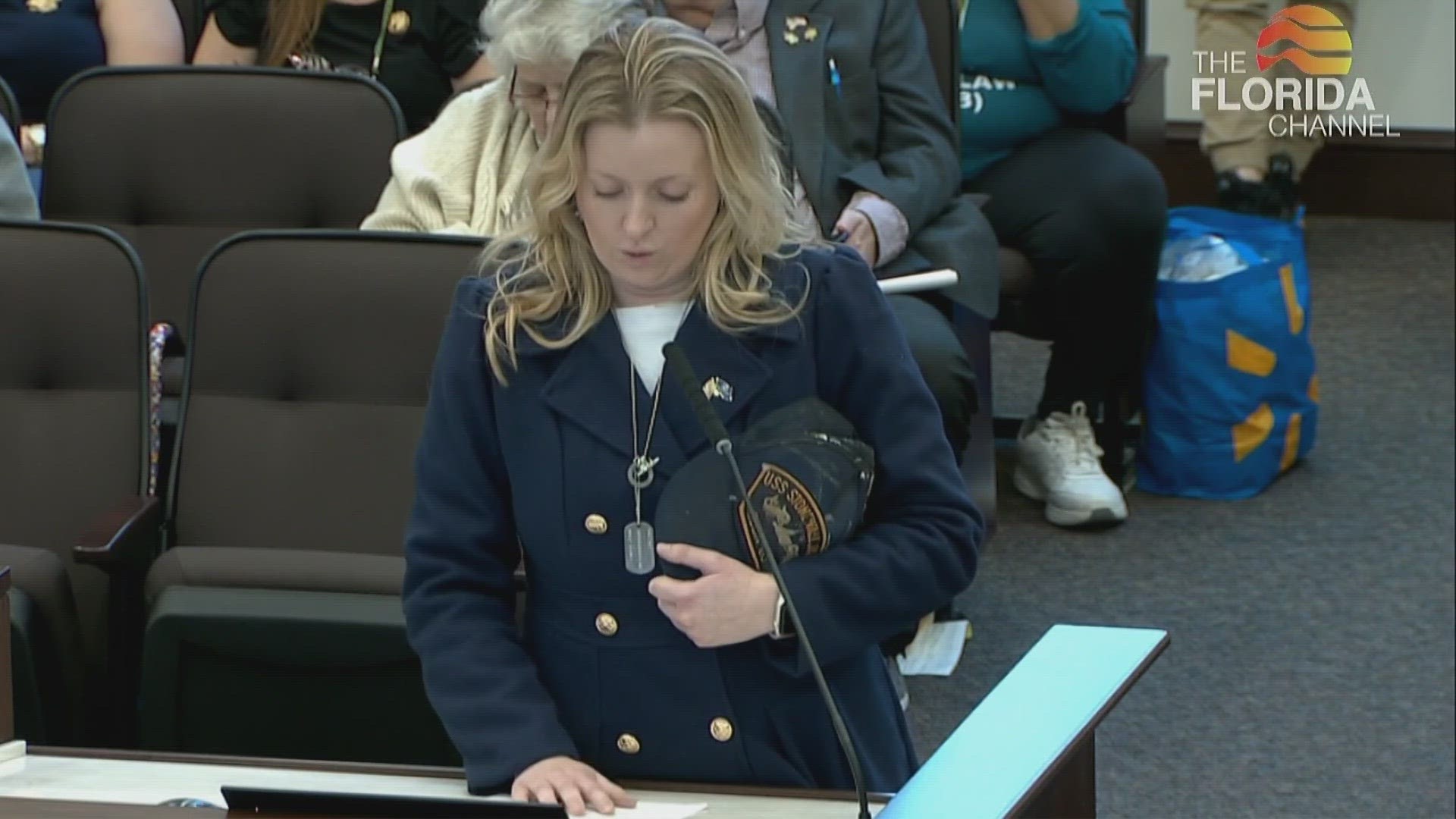TALLAHASSEE, Fla. — Right now in Florida if you’re not married, you’re over the age of 25 and have no children under 25 your loved ones can’t sue if you die because of medical negligence.
It’s a law that’s been on the books since 1990. Senate Bill 248, sponsored by Jacksonville State Senator Clay Yarborough, seeks to repeal it. Monday it was approved by the Senate Judiciary Committee, but not before lawmakers listened to a long list of people, many of whom voiced their opposition to caps that were added to the bill last week.
Michael Beechum brought his 13-month-old daughter Maddie with him to the committee meeting. He showed lawmakers her hand that he says she will lose due to medical negligence.
“As you can see, she is losing the fingers on her left hand. She was born with two healthy hands. She didn’t have an accident. She was under medical care in the hospital in a completely unrelated issue when the circulation got cut off due to medical negligence. On Christmas morning Maddie’s sister and I had to remove her thumb that was dangling from cartilage for fear she would choke on her own finger,” Beechum explained. “Maddie’s got 100 years left in her lifespan, 82 years as a Florida voter presumably. A $500,000 cap is about a latte a day for her life."
Senator Yarborough says the caps would only apply to non-economic damages. He says he modeled the bill after the caps the legislature passed in 2003 but modified it so it would not be struck down by the Florida Supreme Court as previously happened.
“Non-economic damages are pain and suffering,” Yarborough explained. “Economic damages don't have a cap, nor are we proposing that they have a cap.”
"Caps on non-economic damages are going to improve a physician workforce in this state that has a projected shortage of 36,000 by 2035,” Michael Williams, General Counsel with the Florida Hospital Association, told lawmakers.
Yarborough says adding a $500,000 cap on claims against practitioners and $750,000 cap on claims against hospitals and medical facilities are needed in order to get the “Free Kill” law repealed.
“We have a 34-year-old law now that's been on the books that's been to me an injustice that's been impacting them and their families because of this wrongful death exception,” Yarborough said. “But because we have not seen enough support in the legislature to just do a clean repeal, I believe we had to look at another avenue to try to thread the needle and strike a balance.”
But Cindy Jenkins believes the bill would do more harm than good.
“It's just very unfortunate that our fight and the mass awareness has now been used to leverage their wanting to get caps in place and $500,000 caps, if you call all around the state, and you just say, ‘Hey, I'm just curious, if my family member was hurt or killed in a Florida hospital, would you be able to take my case if the law changes to this?’, very few cases will be able to be taken,” Jenkins said. “This will have a major impact on the older population in our state.”
She has been pushing to get the “Free Kill” law repealed since losing her 25-year-old daughter due to what she says was medical negligence.
“If you can't get an attorney to take your case, as we have not been able to because our family members were a free kill, if they now can't take your case because of the caps, which will cause them to be able to take way less cases, we're still being denied that right. They've just traded off one problem for another protection," Jenkins said. “Just a tragedy that this all boils down to doctors, hospitals and insurance companies and their revenues not being touched.”
For Sabrina Davis, who lost her dad to medical negligence, she just wanted to see the “Free Kill” law repealed.
“I don’t want caps, but if caps are the only way this law will change, I think a stronger balance approached would be a tiered cap process, starting at catastrophic gross negligence and working its way down to personal injury,” Davis said. “But money has never been my fight, and I will stay focused on repealing subsection 8.”
Senate Bill 248 still has to pass two more Senate committees before it goes to the full Senate for a vote and then to the House. If it passes, it would take effect in July 2024 and not be retroactive.

